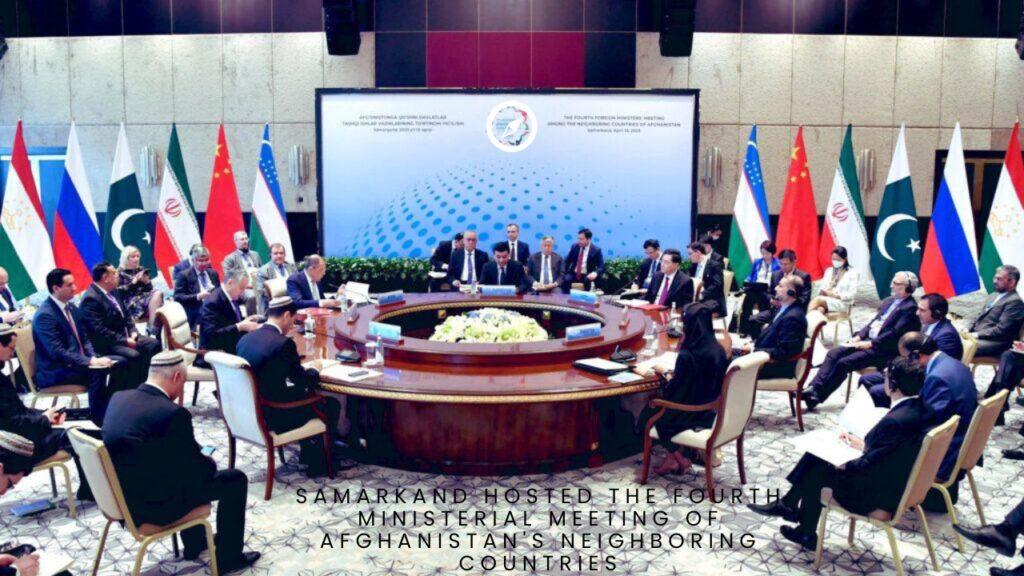The foreign ministers of Afghanistan’s neighboring countries talked about the state of human rights in Afghanistan, terrorism, drugs, and the need for a government that works for everyone. They also spoke in favor of infrastructure, social-economic projects, and economic integration in the area.
On April 13, 2023, the Fourth Ministerial Meeting of Afghanistan’s Neighboring Countries, led by Uzbekistan, was held in Samarkand. Uzbekistan’s Foreign Ministry said in a statement that the event was attended by the heads of the foreign ministries of the host country, China, Iran, Pakistan, Russia, Tajikistan, and Turkmenistan.
During the forum, the parties talked about the current situation in Afghanistan and how the current government is meeting the main demands of the rest of the world, such as making a government that includes everyone, giving Afghan women the chance to work and go to school, and protecting the rights of national minorities.
The participants talked about how important it was to make a plan for working together to help the Afghan people and get the country’s economy back on track. Afghanistan’s economic integration is gaining support from neighboring countries in the region. This is a positive development for Afghanistan’s future, as increased economic ties can lead to greater stability and prosperity for the country. The support from neighboring countries is a clear indication of their recognition of Afghanistan’s potential as an economic partner.
The parties talked about how important it was to boost the actions of Afghanistan’s neighbors in the fight against international terrorism, drug production, and drug smuggling.
The participants also emphasized getting the word out about Afghanistan’s promise as a key part of connecting Central and South Asia. In this context, the participants spoke in favor of implementing infrastructure and socioeconomic projects in Afghanistan with the help of neighboring states. This will not only create new jobs, but it will also help Afghanistan become a more active part of economic processes in the region.


